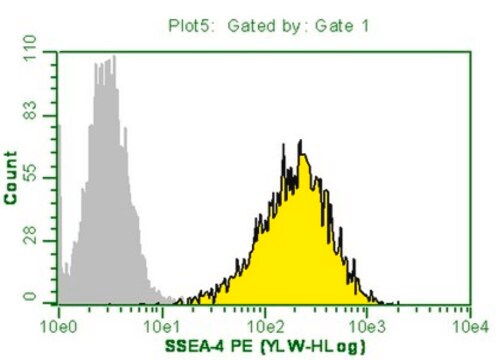FCMAB115F
Anti-TRA-1-60 Antibody, clone TRA-1-60, FITC conjugate
clone TRA-1-60, from mouse, FITC conjugate
About This Item
Productos recomendados
origen biológico
mouse
Nivel de calidad
conjugado
FITC conjugate
forma del anticuerpo
purified antibody
tipo de anticuerpo
primary antibodies
clon
TRA-1-60, monoclonal
reactividad de especies (predicha por homología)
human (based on 100% sequence homology)
técnicas
flow cytometry: suitable
immunocytochemistry: suitable
isotipo
IgM
Condiciones de envío
wet ice
modificación del objetivo postraduccional
unmodified
Información sobre el gen
human ... PODXL(5420)
Descripción general
Especificidad
No immunoreactivity is seen with murine EC, EG, or ES cells. Both the TRA-1-60 and TRA-1-81 monoclonal antibodies (MAB4381) recognize antigens that are associated with a pericellular matrix proteoglycan. TRA-1-60 reacts with a sialidase-sensitive epitope whilst TRA-1-81 reacts with an unknown epitope of the same molecule
Inmunógeno
Aplicación
Immunocytochemical staining of live H9 human ES cells incubated for 30 minutes at 37C with 1:100 dilution of anti-TRA-1-60 FITC conjugated (Cat. No. FCMAB115F) monoclonal antibody. Pluripotent human ES cells exhibit strong immunoreactivity to this antibody.
Flow Cytometry:
Antibody dilution for cellular staining:
- Prepare an antibody working solution by diluting 1:5 the primary antibody with PBS.
- Dispense the volume per test of working of solution according to the number of cells indicated in the table below.
- 5 L for Guava Flow Cytometer
- 10 L for other Flow Cytometry instruments
5 μl Working Solution: 5 x 105 Cells / 95 μl PBS. 100 μl Total Reaction Volume
10 μl Working Solution: 1 x 106 Cells / 90 μl PBS. 100 μl Total Reaction Volume
Stem Cell Research
Pluripotent & Early Differentiation
Descripción de destino
Forma física
Almacenamiento y estabilidad
Nota de análisis
Pluripotent human embryonic stem (ES) cells
Cláusula de descargo de responsabilidad
¿No encuentra el producto adecuado?
Pruebe nuestro Herramienta de selección de productos.
Código de clase de almacenamiento
10 - Combustible liquids
Clase de riesgo para el agua (WGK)
WGK 2
Punto de inflamabilidad (°F)
Not applicable
Punto de inflamabilidad (°C)
Not applicable
Certificados de análisis (COA)
Busque Certificados de análisis (COA) introduciendo el número de lote del producto. Los números de lote se encuentran en la etiqueta del producto después de las palabras «Lot» o «Batch»
¿Ya tiene este producto?
Encuentre la documentación para los productos que ha comprado recientemente en la Biblioteca de documentos.
Nuestro equipo de científicos tiene experiencia en todas las áreas de investigación: Ciencias de la vida, Ciencia de los materiales, Síntesis química, Cromatografía, Analítica y muchas otras.
Póngase en contacto con el Servicio técnico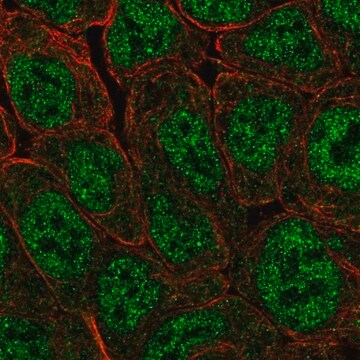
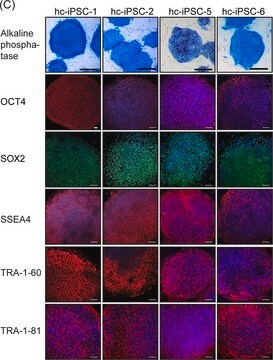
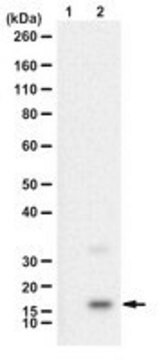
![Anti-OCT-4 [POU5F1] Antibody, clone 7F9.2, Alexa Fluor™ 488 conjugate clone 7F9.2, from mouse, ALEXA FLUOR™ 488](/deepweb/assets/sigmaaldrich/product/images/405/633/324511fc-ecc5-4c49-9d9d-8cf25ab28d40/640/324511fc-ecc5-4c49-9d9d-8cf25ab28d40.jpg)
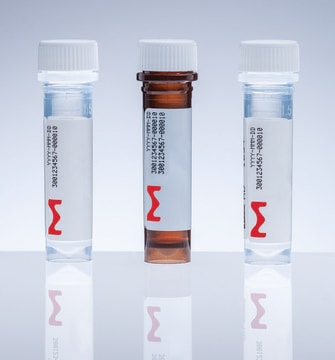
![Anti-OCT-4 [POU5F1] Antibody, clone 7F9.2 clone 7F9.2, from mouse](/deepweb/assets/sigmaaldrich/product/images/307/874/7354f72d-80ee-40a5-b7fa-0590fe6784cc/640/7354f72d-80ee-40a5-b7fa-0590fe6784cc.jpg)
